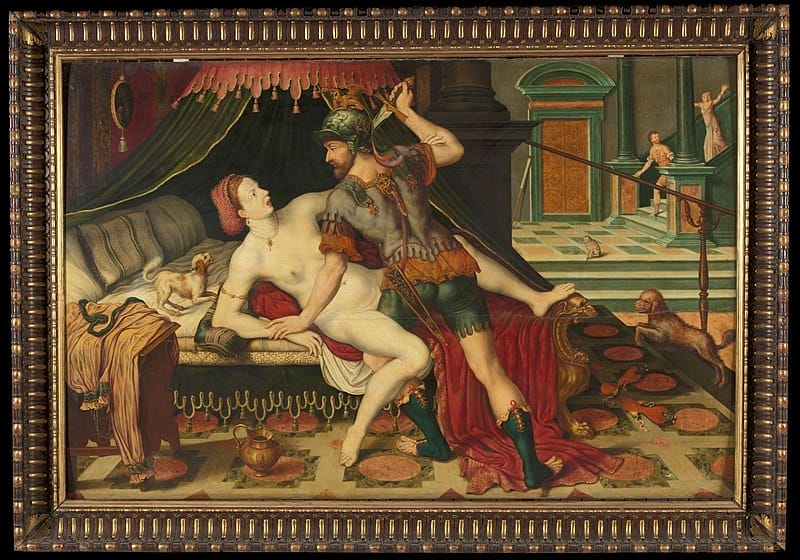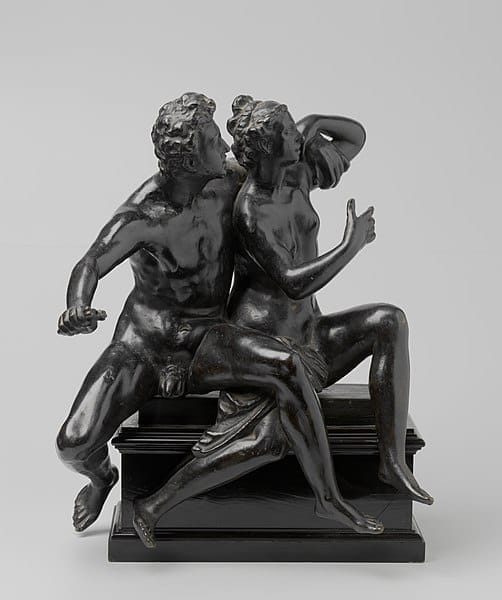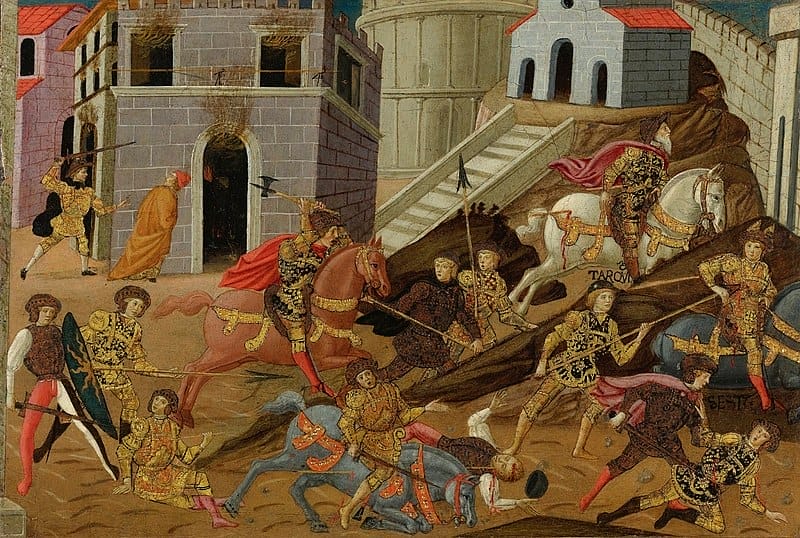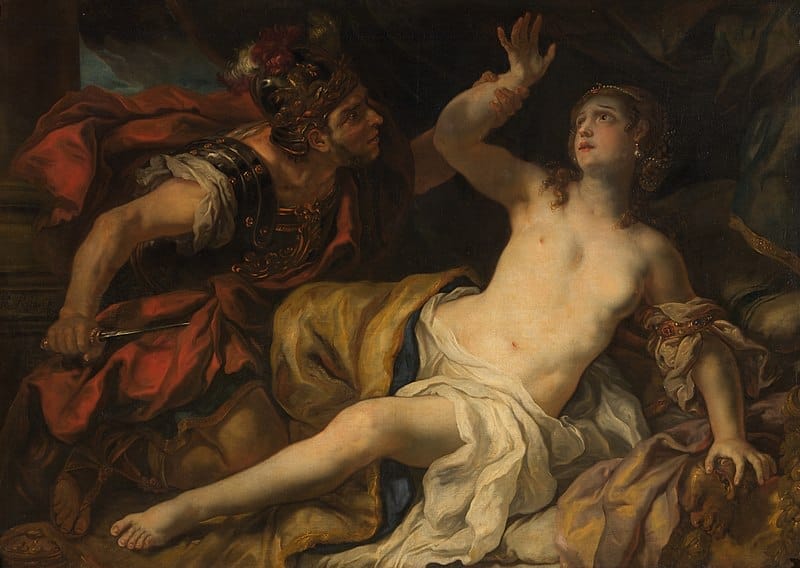The Rape of Lucretia is a pivotal episode from ancient Roman history. It details a tragedy that played a critical role in the downfall of the Roman monarchy and the rise of the Roman Republic. This narrative centers around Lucretia, a Roman matron whose assault by Sextus Tarquinius, the son of the last king of Rome, served as a catalyst for political revolution. Her story has been interpreted variously throughout the centuries, serving as a touchstone for discussions on issues of virtue, power, and morality.

Through the ages, the tale has been depicted in numerous works of art, literature, and scholarly discourse, highlighting its enduring resonance with contemporary themes of justice and societal values. The narrative’s detailed account of personal suffering amid the intersection of private life and public action underscores its timeless relevance. The retelling of Lucretia’s experience and its aftermath continues to shape dialogues around consent, honor, and the civic duty to challenge corruption and tyranny.
Key Takeaways
- Lucretia’s story exemplifies the interplay of personal virtue and public political change.
- Her narrative has been influential in cultural and artistic expressions for centuries.
- The legacy of Lucretia’s tragedy remains relevant in contemporary discussions on ethics and morality.
Historical Context

The tale of Lucretia sits at a crucial intersection of Rome’s moral, societal, and political tapestry during the last years of the Roman Kingdom before the establishment of the Roman Republic.
Ancient Rome and Its Society
In Ancient Rome, social order and family honor were paramount and deeply intertwined with the fabric of daily life. The account of Lucretia‘s tragic fate not only reveals the true power of Roman moral values but also reflects the intense emphasis on virtue, particularly chastity, among Roman women. The society was patriarchal, with paterfamilias (male head of the family) holding significant power over the family members.
The Political Climate of Rome
During Lucretia’s time, Rome experienced a monarchical system, yet it was on the brink of a transformative political upheaval. The Roman Republic was soon to be born from the ashes of her story, which acted as a catalyst precipitating the fall of the Roman monarchy. Dissatisfaction with the ruling Tarquin dynasty and the desire for a new form of government were brewing, setting the stage for one of history’s most significant shifts in governance.
Key Figures and Characters
The events surrounding “The Rape of Lucretia” pivot around a few key figures whose actions and virtues set the stage for the downfall of the Tarquin dynasty and the rise of the Roman Republic. The narrative is deepened by the roles of Lucretia, the members of the Tarquin royal family, and Lucius Junius Brutus, whose rebellion changed the course of Roman history.
Profile of Lucretia
Lucretia was a paragon of virtue, known for her beauty and steadfast morality. She was the wife of Lucius Tarquinius Collatinus, and her tragic fate catalyzed the end of monarchical rule in Rome. Her rape by Sextus Tarquinius, the king’s son, and her subsequent death by suicide are integral to understanding the seismic political shift that followed.
Tarquin Dynasty
The Tarquin Dynasty was characterized by the rule of Lucius Tarquinius Superbus, also known as Tarquinius Superbus or Tarquin the Proud. His lineage included his son, Sextus Tarquinius, and his nephew, Tarquinius Collatinus. The dynasty, notorious for its tyrannical rule and the actions of Sextus Tarquinius, eventually suffered a downfall partly due to the public outrage over Lucretia’s assault.
Lucius Junius Brutus and the Rebellion
Lucius Junius Brutus, a relative of the Tarquin family through his mother, Tarquinia, was initially perceived as harmless to their rule. However, following the attack on Lucretia, Brutus led a rebellion that ousted the Tarquins. He is often celebrated for his role in founding the Roman Republic, proving himself like a cunning and determined leader, ready to oppose the tyranny of his kin for the sake of Rome’s future. He is still considered to be the true father of the Roman Republic.
The Story
According to the legend, Lucretia was the wife of Lucius Tarquinius Collatinus, a nobleman in ancient Rome. One day, Sextus Tarquinius, the son of King Tarquin, visited Collatinus’s home while Collatinus was away. Sextus was struck by Lucretia’s beauty and was overwhelmed by lust for her. In the dead of night, Sextus returned to the house, threatened Lucretia with a dagger, and raped her.
After the assault, Lucretia was full of shame and grief. She confided in her husband and father, begging them to seek justice for her violation. Collatinus, along with his father-in-law and other allies, vowed to avenge Lucretia’s honor. Lucretia, however, feeling that she could not bear the dishonor of the assault, took her own life, choosing death over a life of shame.
Her death sparked outrage among the Roman people, who were already discontented with the tyrannical rule of the Tarquin kings. Lucretia’s father, along with Collatinus and other nobles, led a revolt against King Tarquin, eventually leading to his overthrow and the establishment of the Roman Republic in 509 BCE. This event, known as the Rape of Lucretia, is often cited as a pivotal moment in Roman history that marked the transition from monarchy to republicanism.
The Narrative of the Assault
The attack on Lucretia narrates the tragic violation of her virtuous character, unfolding a tale that culminates in a profound tragedy. Lucretia, a paragon of wifely virtue, became the target of Sextus Tarquinius’ lust. Driven by an illicit passion, he covertly entered her chambers. Despite Lucretia’s chastity, he threatened her, fabricating a scandalous tale of adultery that preyed upon her fear of dishonor. The rape signifies not just an act of sexual violence but an act of tyranny and despotic powers that members of the dynasty thought they possess over Roman society.
Cultural and Artistic Interpretations
The narrative of Lucretia’s tragic tale has been depicted through various mediums, reflecting the persistent influence of this story in cultural and artistic contexts.
Literature and Texts
The historical account penned by Livy in his work Ab Urbe Condita provides a foundational literary source for The Rape of Lucretia. It has been a subject of examination and retelling in numerous texts, including Ovid‘s Fasti, where the story is woven into the fabric of Roman history and its festivals. Additionally, it inspired Shakespeare to craft a narrative poem exploring the complex themes surrounding the incident and its implications on personal and political levels.
Visual Arts
Throughout the centuries, visual interpretations of The Rape of Lucretia have evolved, showcasing the story’s emotional depth and societal impact. Renaissance artist Titian portrayed the harrowing moment with a profound sense of drama that further cemented the narrative in the canon of Western art. His interpretation, among others, examines the intricate interplay of virtue and violence that underpins the story of Lucretia.
Performing Arts
The adaptation of the narrative extends into the realm of performing arts, notably with Benjamin Britten‘s 20th-century chamber opera. Its libretto, crafted by Ronald Duncan, encapsulates the poignancy of the tale through a synthesis of music and storytelling. This operatic rendition serves as a testament to the enduring resonance of The Rape of Lucretia’s themes—morality, power, and honor—in contemporary art forms.
Legacy and Influence

The story of The Rape of Lucretia stands as a climactic moment in ancient Roman history, not simply as a tragic narrative but as a seminal event that catalyzed the overthrow of kings and the establishment of the Roman Republic. Its repercussions span the realms of morality, society, and governance.
The Role in Founding the Republic
The brutality of Lucretia’s assault by Sextus Tarquinius, the son of the Roman King, and her subsequent suicide with a sword stirred profound public outrage. This incident became a rallying cry for the Romans, where her honor and the indignity of her suffering moved them to action. Lucretia’s death was seen by contemporaries as an act of martyrdom that maintained her purity and honor in the face of unspeakable wrong.
As chronicled in Livy’s Version of the events, this moral stance against tyranny led to a full-scale rebellion against the ruling Tarquin family, culminating in the expulsion of the Roman King and the formation of the Roman Republic. It was a legend immortalized in history, suggesting that even in the private pain of a single individual can lie the potential for widespread societal transformation.
Moral and Ethical Implications
The narrative surrounding Lucretia’s fate has long served as a canvas for discussions on gender, guilt, redemption, and the societal assignment of blame. The notion that Lucretia’s choice to commit suicide out of a sense of violated honor has been interpreted in various lights over centuries.
Early Christian writers, such as Jerome, employed Lucretia’s tale to discuss themes of purity and chastity, while later interpretations considered the complexities of her guilt and blame in the context of her victimhood. In analyzing Roman Law and Roman Myth, scholars examine how the story contributed to debates over the roles of men and women, the concept of honor versus dishonor, and the dynamics of power between individuals and the state.
Contemporary Relevance

The narrative of The Rape of Lucretia continues to evoke discussion and analysis, particularly concerning its implications in modern contexts.
Modern Interpretations and Debates
Modern discourse often examines The Rape of Lucretia through various prisms. These include tradition, the role of spinning as an emblem of female virtue, and the symbolism of the dagger. These elements are reassessed to understand their meanings in contemporary society. The act of Lucretia’s spinning is now scrutinized for its links to gendered expectations. Lucretia’s spinning is typically a signifier of domestic femininity.
The retelling of the story has seen shifts in focus, such as challenging the historical glorification of Lucretia’s suicide by the dagger. Some also question whether it reinforces problematic narratives about female purity and honor. Such debates extend into the realms of opera and theatre, where the male chorus might serve as a Greek chorus-like commentator on the events. They shape audience reactions and interpretations.
Interpretive performances often highlight the tensions between historical context and current understandings of consent and sexual violence. Some versions grapple with parallels to the rape of the Sabine women and their role in the founding of Rome. These versions question the legacy of these myths in endorsing patriarchal structures. The character of Bianca has been introduced in some reinterpretations to represent an alternative female narrative. Bianca offers a contrast or a challenge to the established storyline, potentially providing a commentary on agency and victimhood.
People Also Ask:

The story of Lucretia stands at a crucial point in Roman history, symbolizing the fall of the monarchy and the birth of the Roman Republic. These questions explore her significance and the impact of her story.
Who was Lucretia in Roman history?
Lucretia was a noblewoman in ancient Rome, considered a paragon of virtue. Her tragic fate at the hands of Sextus Tarquinius, the son of the last Roman king, has been a pivotal moral lesson in Roman culture.
What event led to the downfall of the Roman monarchy?
The rape of Lucretia by Sextus Tarquinius was the catalyst that led to the revolt against the Roman monarchy. Her subsequent suicide rallied the Romans to overthrow King Tarquin the Proud and establish the Roman Republic.
How did the event involving Lucretia and Tarquin contribute to Roman society?
Lucretia’s ordeal and the resultant upheaval caused by her death marked the transition from a monarchical system to the establishment of the Roman Republic. This highlighted issues of virtue, justice, and governance in Roman society.
Who was responsible for the death of Lucretia?
Lucretia’s death was self-inflicted. However, it was precipitated by the actions of Sextus Tarquinius, whose rape led her to commit suicide out of a sense of lost honor and the desire to not be perceived as complicit in her own violation.
What is the significance of the story of Lucretia in literature and art?
The story of Lucretia has been a recurrent theme in literature and art. It is often used to exemplify themes of virtue, chastity, and the consequences of tyranny. It has inspired numerous works across various mediums and periods, embodying the conflict between personal honor and systemic corruption.
How has Lucretia been depicted in Western culture over time?
In Western culture, she has been depicted as a symbol of virtue. She has also been depicted as a martyr of chastity. Her portrayal has evolved. It reflects changing cultural attitudes towards gender, power, and morality.
